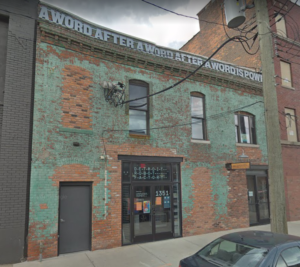
As a Flint resident, it’s easy to sometimes feel ambivalent about many of the investments happening in Rust-Belt cities.
These cities, struggling through decades of public and private disinvestment, are finally getting some love from the world outside world again, in the form of beautification, green, and economic investment initiatives.
Yet for those of us who make such cities our homes, we often feel like bystanders in this process. Residents who have worked long hours and paid out-of-pocket to make their neighborhoods cleaner and safer feel suddenly bypassed by glossy new startups and philanthropic pet projects. In other cases, the reverse-redlining of favored startup districts and the feel-good Band-Aid projects leaves residents feeling like their supposed benefactors care more about patching up eyesores than fixing serious problems. Through all of this, some residents are more taken-for-granted than others.
What is it like to grow up in a city like Flint or Benton Harbor or Highland Park or Detroit? To sit in overcrowded classrooms in understaffed schools where athletic and extracurricular activities have been stripped away year by year, the victims of budget shortfalls and declining enrollment? How do students as bright and ambitious as those in any affluent district or private school forge their futures given the resource deficits their cities can provide?
These are questions that nonprofits operating in the Rust Belt cities have an opportunity to answer and I am pleased to have encountered a number of them that have taken on this challenge.
I had the opportunity last year to visit 826michigan in Detroit when I was promoting my serial novel Urbantasm. It was a chance to take my book on the road to Detroit, but 826michigan (aka the Robot Factory) is not an ordinary venue. Describing itself as a “non-profit writing center,” 826 focuses specifically on local grade- and high-school students. With their Detroit writing lab located just blocks from the Eastern Market on Detroit’s East Side, the Robot Factory is accessible by bike, car, and public transportation. What students find at the Robot Factory is a very special space that focuses specifically on them and their literary development.
826’s ever-evolving programming includes a rotating schedule of workshops targeting young writers, writing events and field-trips coordinated at local libraries, schools, and at the writing lab, and help getting student work published. 826 programming also extends beyond creative writing, with free tutoring available for students aged 8-18 every Monday through Thursday during the school year.
This is the sort of programming that encourages me when I consider the future of cities like Detroit and Flint. The youth of our cities are our future in a very literal sense, and helping them grow as writers and storytellers empowers them to act and testify to their own powerful experiences. Organizations like 826michigan may not glitter from the streets of downtown Detroit, or single-handedly bring in the next major contract or pennant, but they help Detroit share its own truth. This is powerful work, and work that must be supported for the future of our communities.